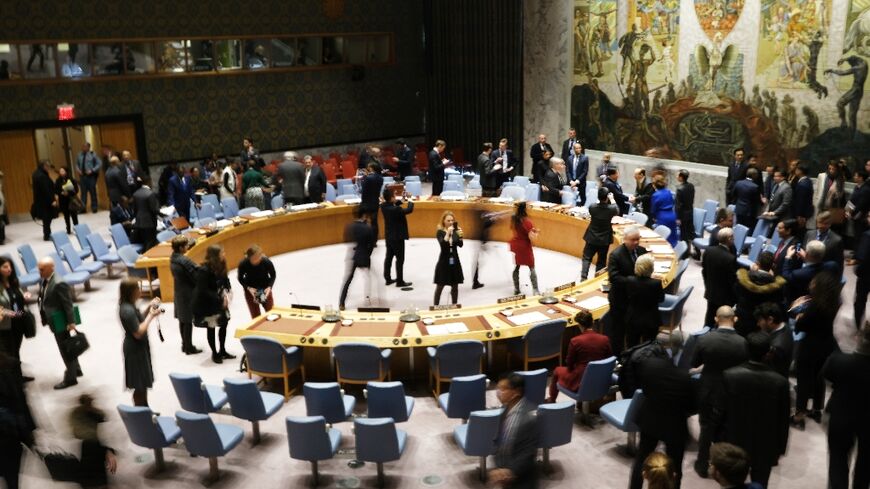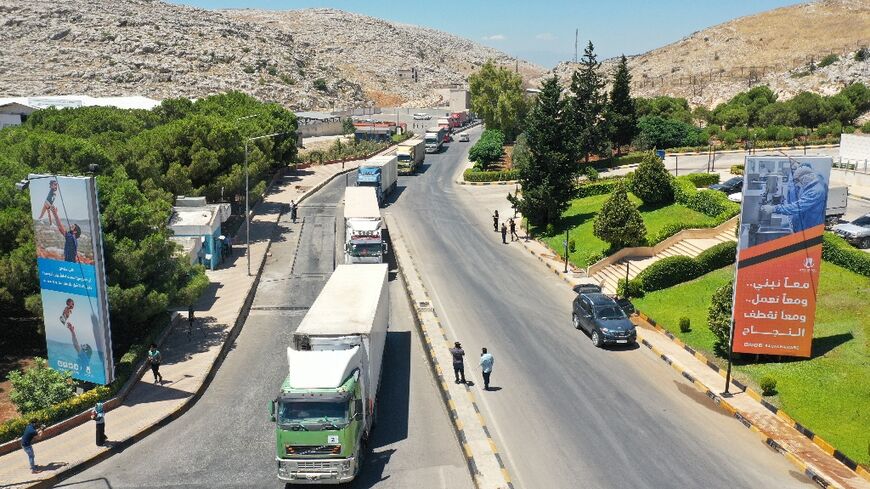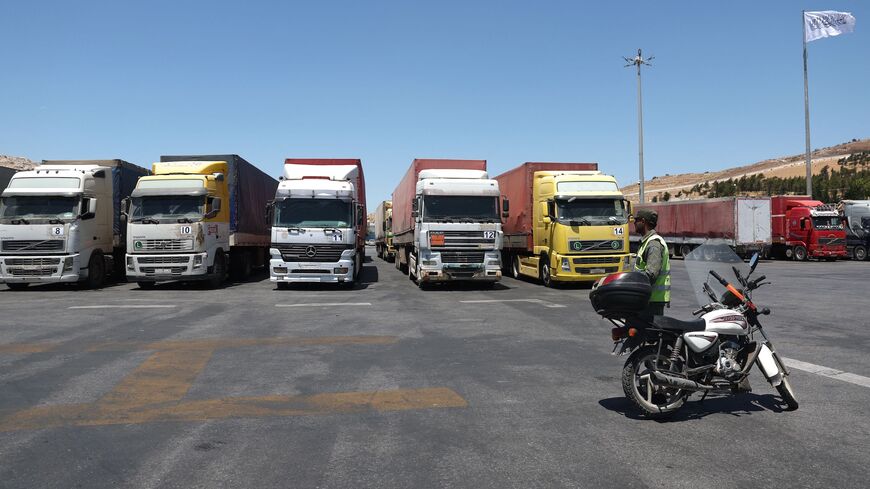UN chief calls for extension of Syria cross-border aid resolution

UN Secretary-General Antonio Guterres on Monday called for the Security Council to extend its authorization of cross-border aid into northwest Syria by a year -- a policy that veto-holding Russia has criticized.
The UN resolution allowing aid deliveries across the Syrian-Turkish border at Bab al-Hawa has been in effect since 2014, but is set to expire on July 10.
Nearly 10,000 trucks loaded with humanitarian aid passed through Bab al-Hawa last year bound for the rebel-held Idlib region. It is the only crossing through which aid can be brought into Idlib without navigating areas controlled by Damascus.
"I strongly appeal to the members of the Council to maintain consensus on allowing cross-border operations, by renewing resolution 2585 for an additional 12 months," Guterres said at the Security Council's monthly meeting on Syria.
"It is a moral imperative to address the suffering and vulnerability of 4.1 million people in the area who need aid and protection," said Guterres.
"When it comes to delivering life-saving aid to people in need across Syria, all channels should be made, and kept, available."
Russia, an ally of Damascus, could veto a proposal to extend the cross-border aid mechanism, having already forced a reduction in the number of allowed border crossings on the grounds that it violates Syria's sovereignty.
Norway's deputy ambassador, Trine Heimerback, said ahead of the Council meeting that in addition to humanitarian aid, the resolution's renewal "will also facilitate further early recovery projects."
Her statement could be read as a hint that Western nations will assist in the early stages of Syrian reconstruction projects in exchange for Moscow allowing the cross-border aid resolution to pass.
Russia has long called for the West to participate in Syria's reconstruction, but some members of the Security Council, most vocally France, have refused until political reforms have been enacted.
- Only route not controlled by Damascus -
"In the absence of a political solution, there is absolutely no reason to normalize relations with the Syrian regime and move towards reconstruction," reiterated the French deputy ambassador, Nathalie Broadhurst, on Monday.
The United States, for its part, also hinted at possible increased involvement in Syrian reconstruction projects.
US ambassador Linda Thomas-Greenfield, who recently visited the Syrian-Turkish border, said that she "reaffirmed US support for early recovery efforts, which we know continue to be an important component of sustainable response efforts."
Russia's deputy ambassador, Dmitry Polyanskiy, said that Moscow is "convinced" that humanitarian aid can reach "all regions of Syria" via Damascus, and blamed international sanctions for Syria's worsening humanitarian crisis.
Dozens of aid groups and six senior UN officials called in separate statements last week for a year-long renewal of the cross-border aid authorization, which was last extended in January for six months.
Eleven years into Syria's civil war, three million people live under the rule of jihadists and allied rebels in the Idlib region.
Half of them have been uprooted from their homes in other parts of the country and rely heavily on international aid.




